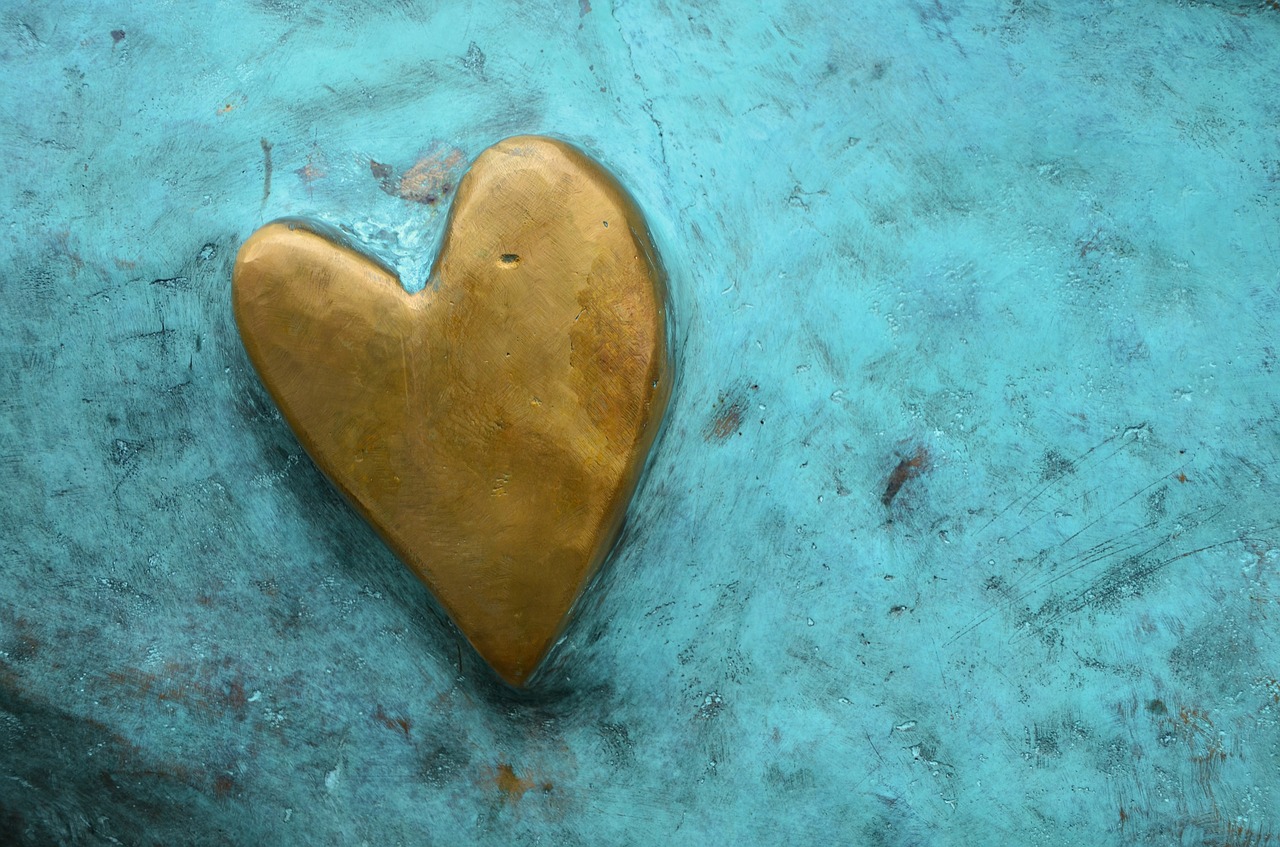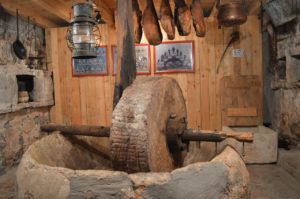A Demon Turned Heathen
I met a new ‘demon’ yesterday. She was twisted and bent, doubled over with stress and covered in cysts. She walked with a cane, and was orangey-pink and red in color.
When I say ‘demon’ here, I clearly don’t mean the kind of demon that normally springs to mind in popular culture. There were no pitchforks or flames, no  oppression or seeking the ruination of human souls. There wasn’t even anything even vaguely chthonic about this ‘demon’ either, and the only bowels involved were the bowels that live inside my body.
oppression or seeking the ruination of human souls. There wasn’t even anything even vaguely chthonic about this ‘demon’ either, and the only bowels involved were the bowels that live inside my body.
This ‘demon’ was instead more of a body-mind manifestation, and meeting her and hearing her out took my IBS pain from about a four to a zero.
I’m a fan of shadow work and find the process of examining one’s ‘shadow’ to be a useful activity. But as Pagans and Heathens, we’re not so good on the release/resolve stage of this process. Sure journaling, journey, and/or ritual can also help. However, I am yet to find anything within the Pagan/Witch/Heathen sphere that is nearly as effective as Tsultrim Allione’s Feeding Your Demons. Out of all the possible ways for working with one’s shadow (or ‘demons’), this is the method that has brought me the most tangible returns.
So there I was with my ‘demon’, feeding her of myself until she became a beautiful woman in her 30s. I called her ”Mōdsefa” and promised to listen to her. Then we made friends, and my stomach hasn’t hurt since (long may it continue!).
Sitting with Mōdsefa
Since my experience of meeting “Mōdsefa” (a name that felt appropriate for an intelligence that resides in the torso), I have found myself mulling over the role of women and female-presenting people in religious and magical communities.
As all too often happens, synchronicity saw a party going on and also decided to jump into the mix. First I came across an article written by a Zen nun about

how enlightenment is a male fantasy reserved for monks (and the cooking and cleaning reserved for nuns). Then my friend shared a poem/meditation on Mary’s ignored-role in birthing and nursing Jesus. As this poem so ably demonstrates, again men are able to concentrate on the transcendental whereas the woman is left with the bloody and painful practicalities of essentially making that happen. If we are to believe Christian mythology, Mary may have brought Jesus into the world (and is ‘venerated’ – not worshipped – for the fruit of her womb), but women were supposed to be silent in church, unable to give teachings or administer the symbolic representations of the body and blood of that woman-born child. Mary herself would be ineligible to serve the representations of the child that she herself birth and fed. Take some time to think about that.
In the context of both religions, we are nothing but supports for male aspirations and experiences, and like my poor Mōdsefa, our capabilities and contributions all too often ignored.
Heathen Women Then
But this is not just a Buddhist or Christian thing; we see a similar mindset in the gendered roles of Heathen women too. As LMC Weston argued in Women’s Medicine, Women’s Magic: The Old English Metrical Childbirth Charms., the cultural center that was the hall in this period was the domain of men, and the women largely relegated to support roles:
“Where the men’s hall occupies the cultural center and defines that “semblance of order,” women and women’s lives outside the hall in the places where they cooked the food, wove the cloth, and bore the children-all processes, as Sherry Ortner argues, transforming nature into culture-represent a potentially dangerous ambiguity. Given the logical oppositions male/female and human/nonhuman, if the norm for human is male, where does woman stand if not on the boundary between the human hall and the nonhuman wilderness?”
Jenny Jochens makes similar observations in Women in Old Norse Society. Not only were women excluded from all political life (beyond what influence they could garner through incitement and other forms of manipulation(, but they too were relegated to the role of server during feasts (which arguably held religious as well as cultural and religious dimensions). (Jochens 107-108, 113-114)
We modern folks may pretend that the Heathen period woman’s lot was a liberated one, but often the reality is that it might only be described so when compared with the most misogynist societies in Europe.
Heathen Women and Female-Presenting People Today
Unsurprisingly, it’s not uncommon for modern Heathen males (as well as some females) to argue for the same bifurcation of spheres and labor today. This pattern is not unfamiliar in some communities from what I understand, and even among more progressive groups, you may still find the men peeling off to have the more philosophical discussions over beers while the female-presenting humans are left to basically facilitate everything else (or in some

cases face social censure).
For some modern Heathen women (especially on the right of the political spectrum), this is an acceptable state of affairs and considered to be ‘right’, and over the years I have observed attempts to sacralize housework and child rearing in some way in order to somehow make it seem less onerous and more “honored”. As with all “honored” things of this nature though, that “honor” only ever seems to take a form in which the woman/female-presenting person is divorced from physical and personal cost in the minds of men as readily as they are the political and religious spheres. This is “honor” that is convenient for men, and built almost entirely on platitudes and approval-seeking behaviors.
There is nothing wrong with finding fulfillment in housework or child rearing. But let’s not pretend that a polished turd is anything but what it is. True honor is recognizing the personal and physical costs as well as making efforts to include and listen to those you wish to honor in the political and religious processes of your community.
The Reconstructionist’s Dilemma
As with many aspects of modern Heathenism, many of the arguments surrounding the role of female-presenting humans center around history. This is to be expected in a group of religions with heavy reconstructionist influence. However, we do not reconstruct everything, and if anything, our reconstruction is often quite selective. Sometimes this is because we don’t like what the sources have to say, but other times it’s because we recognize that our society and the laws that we live by are very different.
The History of the Spindle Side
Like my poor, ignored Mōdsefa ‘demon’, the history of women and other female-presenting humans is all too often ignored. Though credited with preserving older tales while at work at spinning and in the weaving rooms by scholars such as Rumpf, women as a whole are left out of the conversation. No  one talks about the labor of birthing the next generation, the countless hours spent clothing families and producing textiles to sell, or how it was the work of women that created the sails that drove the ships and enabled mankind to first go into space.
one talks about the labor of birthing the next generation, the countless hours spent clothing families and producing textiles to sell, or how it was the work of women that created the sails that drove the ships and enabled mankind to first go into space.
Whereas men have told their stories loudly and publicly, women have told them together and behind closed doors. Men have produced text and books of pages whereas women have produced textile and books of embroidery (Karen Bek-Pedersen 2007, pp 154 – 156).
And through it all, women (whether they understood themselves to be so or not) have worked to find their own ways to the holy (be it through cooking rice or renouncing the world in order to join religious communities for women).
In the Völuspá, ‘primal law’ (ørlög) is depicted as being something that is decided, scored, and spoken by women, and it is the völur that chooses and speaks the fates of men when asked at seance (Karen Bek-Pedersen, pp 200 – 201). There is a lot of power in choice, and I would like to see those of us who are either women or female-presenting people become choosers too.
I would like to see us choose solidarity and throw off the centuries of negative PR surrounding friendships between women (read Silvia Federici for more on that). I would like to see us choose to support each other and our own aspirations (be they spiritual or mundane). Finally, I’d like to see us choose a better path for our children. Because if there is one thing we can never forget, it’s that the patterns we create now, are what they will have to live with in the future.
So choose deliberately, friends, and learn to listen to the women/female-presenting people in your lives because we can do amazing things as a species when we actually work together.


 isolation, mine sees each tree as it is: connected through roots and mycorrhizal fungi to other trees. Trees that have been found to provide mutual aid to each other regardless of tree ‘type’.
isolation, mine sees each tree as it is: connected through roots and mycorrhizal fungi to other trees. Trees that have been found to provide mutual aid to each other regardless of tree ‘type’. The word Jötunn is thought to come from the Proto-Germanic *etunaz, which is in turn thought to be semantically connected to the Proto-Germanic *etanan, or ‘greedy’, ‘voracious’, ‘gluttonous’, ‘consuming’. Although the above snippet from Völuspá pertains to Ragnarök, it is also relevant here.
The word Jötunn is thought to come from the Proto-Germanic *etunaz, which is in turn thought to be semantically connected to the Proto-Germanic *etanan, or ‘greedy’, ‘voracious’, ‘gluttonous’, ‘consuming’. Although the above snippet from Völuspá pertains to Ragnarök, it is also relevant here. produce with little concession to human wants or needs. Productivity and profit have become king now, and people work like cattle but then struggle to survive regardless of their labor.
produce with little concession to human wants or needs. Productivity and profit have become king now, and people work like cattle but then struggle to survive regardless of their labor.